#australian immigration and asylum
Text
Exploited in a crisis: why are Sri Lankans getting on boats bound for Australia?
Exploited in a crisis: why are Sri Lankans getting on boats bound for Australia?
This article titled “Exploited in a crisis: why are Sri Lankans getting on boats bound for Australia?” was written by Devana Senanayake in Colombo, Aliyar Mohammed Geeth in Trincomalee, and Ben Doherty in Sydney, for theguardian.com on Saturday 25th June 2022 20.00 UTC
“I thought if I travelled to Australia, I could earn more money and lead a better life,” Jayan* says from his modest home, in…

View On WordPress
#Article#Australia news#Australian immigration and asylum#Australian politics#Ben Doherty#Features#South and Central Asia#Sri Lanka
0 notes
Text
The United Nations' Committee against Torture has urged Australia to end mandatory detention for all illegal arrivals, including children.
In a review published on Friday, it also called for Canberra to raise the legal age of criminal responsibility, currently set at 10.
The UN committee voiced concerns that detention continues to be mandatory for all unauthorised arrivals and that "the law does not establish a maximum length for a person to be held in immigration detention, reportedly resulting in protracted periods of deprivation of liberty".
The committee called on Australia to abolish all legislation "establishing the mandatory and indefinite detention of persons entering its territory irregularly" and that unaccompanied minors as well as families with children are not detained "due to their immigration status".
It also slammed Australia for the practice of handling asylum claims offshore, highlighting the island state of Nauru and the Christmas Island detention centre, and called for all migrants to be transferred to mainland Australia.
The committee also voiced serious concerns over the country's "low age of criminal responsibility", which is set at 10 years of age, and called on the government to raise it as well as ending the practice of solitary confinement for kids.
Indigenous children and children with disabilities were disproportionately affected, according to the review, which also looked into countries such as Chad and Somalia.
Indigenous people in Australia are significantly more at risk of being incarcerated, making up some 30 per cent of the country's prison population, while only representing 3.2 per cent of the total population, according to the UN committee.
The committee urged Australia "to identify the root causes of the overrepresentation of indigenous people in prisons and revise regulations that led to the high incarceration rates".
#australia#global politics#global news#migrants#human rights#news#auspol#asylum seekers#immigration#australian immigration
2 notes
·
View notes
Text
Terrible news from australia: crazed incel joel cauchi, motivated by extreme misogyny, launched a stabbing attack in the bondi westfield shopping mall that resulted in the deaths of six people—five of them women—dozens injured, and left a baby girl motherless. The only man killed was a security officer, Pakistani immigrant Faraz Tahir, who bravely and tragically risked his life trying to stop Cauchi.
Unfortunately, due to the insane media climate these days, propagandists seized on the attack to try and push an agenda, lead by notorious tankie fascists simeon boikov and maram susli; they spread falsehoods claiming that a jewish man named ben cohen (one of the most common Jewish names btw) was responsible for the attack, motivated by an apparent hatred for gentiles
Of course, seeing as how much reach antisemitic pro-kremlin accounts have online and off, it didn’t take long for Australian news outlets to pick up the rumour and spread it without verifying. The Benjamin Cohen whose pictures were found and circulated to serve the rumours called the news to retract the accusation and apologise, which they did, but the damage was done, and the torrent of harassment Ben and his family received prompted him to hire a solicitor to sue boikov and susli.
With the possibility of facing actual consequences, boikov and susli (better known by their online handles That Aussie Cossack and SyrianGirl, respectively), have backtracked and claimed they are actually the ones being defamed. It bears noting that boikov’s ass has been parked in the Russian consulate for a while now trying to claim asylum due to the Australian government trying to arrest him for assault, and susli opened a crowdfund for her legal woes 🤡



189 notes
·
View notes
Text
Finally some good news out of Australia. The High Court have finally overturned one of the cruellest, most reprehensible rulings in Australian history (its a crowded list), one that happened not in the 'bad old days' but within my lifetime. It ruled that asylum seekers could be held in indefinite detention by the Australian government if they could not be deported (ie were stateless). Fuck judges McHugh, Hayne, Callinan and Heydon. Absolute monsters, bootlickers for the Howard government. Gleeson, Gummow and Kirby dissented.
Good riddance Al-Kateb v Goodwin [2004] HCA 37, it's seriously overdue.
53 notes
·
View notes
Text
If you aren't Australian you may not understand how astounding and game changing this is.
Australia has some of the most horrendous treatment of asylum seekers in the world. Mandatory detention is a disgusting human rights abuse. And indefinite detention being the outcome of that is pure evil.
And it's unlawful now. It has to end. They don't get a choice.
Now, if we can end mandatory detention as well, maybe we could get back on track as a country with a slight amount of conscience.
36 notes
·
View notes
Text
Australian & New Zealand Author Showcase No 20 – Luke Arnold
February 9, 2024 by Charlie Cavendish

An idea squeezed into my head in 2023, after seeing so many of the book community gathering at conventions across the US and UK. And once my FOMO subsided, I got to thinking about who might be gathered together if we had similar conventions closer to home. Pending the master planning required to arrange a massive convention, I thought the next best thing might be to run an Australian & New Zealand author showcase. So, I sent out the call, with the only prerequisite for participating being the author had to have been born in either country or currently live there.
Its now 2024 and the Aussie / New Zealand Author Showcase is gathering steam again. Just when I thought it was over even more talent has emerged, at this rate its threatening to become year long event! I will continue to post their individual showcases at regular intervals. So hopefully you will enjoy these interactions with some very talented people. Please be sure to check out their work, sign up to their newsletters and follow them on their social media of choice. I make no apologies for any damage inflicted to your TBR’s!
Showcase No 20 finds me chatting with very talented Luke Arnold. Luke is the award-winning actor from projects such as Black Sails, Glitch and Never Tear Us Apart: The Untold Story of INXS as well as the author of The Fetch Phillips Archives; a series of fantastical detective stories which has third instalments to date.
Do you feel that being an Aussie / Kiwi (or residing there) influences your writing?
Absolutely. I didn’t leave Australia until I was in my twenties so, for better or worse, I was brought up with a distinctly Australian outlook. It’s something that can be easily mischaracterised and also requires some distance to properly understand. Being both a young and old country, we’re still finding ourselves, experiencing growing pains, and struggling with our identity.
At the same time, isolation and an abundance of natural resources means a lot of us are able to benefit from a high quality of life without working as hard as we’d need to in many other places in the world. I think a lot of Aussies know this in their bones, and it makes us nervous of “rocking the boat” for fear that we might lose the advantages we have.
This aversion to change has some embarrassing repercussions on relationships between European Australians and Australia’s First Nations People, as well as our treatment of immigrants and asylum seekers.
We have a different kind of national identity to other western countries like the USA or Britain. We’re still trying to play the underdog – the little colony down under that punches above its weight – but that persona no longer fits us the way it used to. These themes seep into all my work.
Fetch Phillips may have the outward appearance of a classic American hard-boiled hero, but he has an Australian heart. He’s someone who feels separate, a bit ignorant, reticent to become a leader, and happy to defer to those he sees as being older and more experienced. He values being humble and self-effacing, but there is safety in that identity.
It allows him to shirk responsibility and hide in the shadows, even when it should be his moment to step forward. He’s a man who didn’t grow up when he was supposed to and is struggling to come of age too late. I feel like Australia is going through the same thing.
What are some of the challenges being located so far away from the rest of the world, do have any tips for overcoming these?
When I was first trying to get published, I was lucky in that I was already working overseas and had some profile from my acting career. That’s a clear advantage I don’t take lightly. Though I’d always wanted to write, the thing that pushed me to finish my first manuscript was a desire to spend more time at home. My acting career was reaching a point where every job was in a different city, and I wanted to know that I could keep working creatively without needing to get on a plane. There are numerous advantages to being creative in Australia.
One thing that is easily overlooked is that we have more safety nets that some other countries. I really notice this when I’m in the US. It’s terrifying to have no money in America. Of course, cost of living is going up everywhere, but I still think there are more ways to find a balanced life in Australia where you can keep a roof over your head and be creative at the same time. Yes, it’s a smaller market and it can be hard to break out overseas, but if the goal is to live a creative life where you do the thing you love without panicking that someone’s going to kick you out on the street, this is one of the best places in the world to establish yourself.
Personally, I know I couldn’t have survived as a young actor long enough to build my career without the support systems that Australia offers.
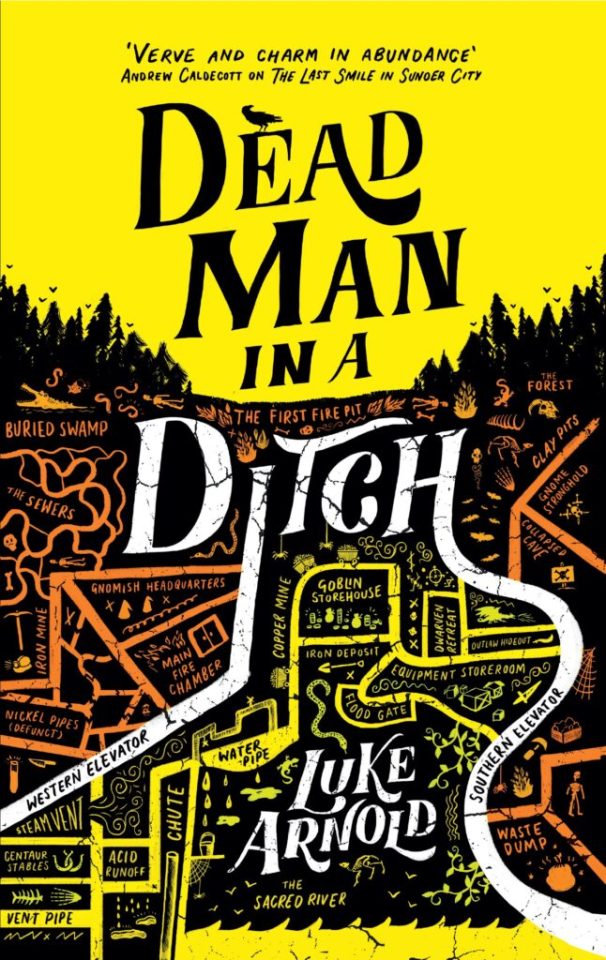
3. How do you go about establishing connections in the book community? (any tips / suggestions)
I’m terrible at this. My first two novels came out in 2020 when we were all locked inside, and I’ve only met a handful of other authors in person. So of course, social media is a huge asset.
I mostly rely on creatives I’ve known for a long time. Every couple of weeks, I catch up with an author friend, Steven Lochran, I’ve known since high school, and we read each other’s stuff and discuss what we’re working on. I have a number of other people, some writers some not, who I use as beta readers when they have the time.
Finding your own colleagues that you trust and feel comfortable to share your work with is more important than trying to network your way onto tables with notable people in the industry. If you do good work, then that will happen naturally.
4. Do you have a favourite character to write? And conversely are there any of your characters that are the more of a struggle?
Fetch is fun because he still surprises me. There’s a lot of me in him, and he’s dumb enough that I can stuff my own fears and ideas into his head and have him try and make sense of things. It’s always harder when I have to write someone more intelligent – someone who might have the answers he seeks – because then I need to get ahead of my own pondering and come to some conclusions. Perhaps that’s why everyone is fallible in my world, and even those who seem to have the answers will likely fall to pieces before the end of the story.
5. So aliens finally reveal themselves to us and your work is presented to them as example of what humanity has to offer, what do you hope they will take away from this intergalactic exchange?
I hope they’d see that we’re flawed, confused, vulnerable little things, and yet we keep trying to be better. Individually and collectively. My books are noir in tone, but the point isn’t to say that we’re all broken and corrupt. It’s about celebrating the way we keep trying to be good, even in the face of terrible darkness. Even when we’ve made mistakes that should he unforgivable. Even when the pressure – both without and within – feels like it’s going to crush us. Hopefully, if they’re looking at the state of things right now, it might help them see that we’re not completely lost.
6. Tell us something about yourself that not many people know?
In this relentlessly online world, it’s hard to think of something that isn’t already out there. So I’m trying to think of something obscure. Maybe I’ll share that I play a bit of Beat Saber in VR and I’m determined get to the top of the leader board for Billie Eilish’s Happier Than Ever (normal difficulty). I’m broken the top 100 but I’m gunning for a top ten spot.

What would you say is the best thing about being an author and the worst?
The best thing is that your work is all yours. There are very few creative endeavours out there where you can give so much of your internal world to another person. While our editors and publishers are integral, it’s not the same collaboration as making a film or playing a song with a band. This is all you.
The worst thing is that your work is all yours. You can get feedback and guidance, but it’s only your name on the cover. You must write every word, alone, without anyone encouraging you or sharing the load. Every time I write a book, I’m struck by what a monumental act of faith it is. One word after the other, day after day, for months, hoping that by the end it will be at all interesting to anyone else. Some days I can’t write a text to someone without crumbling under self-doubt, but then I have to find the motivation to pump out a few thousand words of fiction.
And at the end of it all, when someone else enjoys the finished product, they will also be alone, somewhere far away, playing out the story in their own head, and you’ll be completely oblivious to how it’s making them feel. It requires a level of self-belief that is easier to summon some days more than others.
8. Any other Aussie / Kiwi creatives you’d like to give a shout out for? (let’s spread the love)
I’m embarrassed to say that my reading really dropped off over the last year, but if you want some more noir, this time with a sci-fi twist, the 36 Streets by T.R.Napper’s is a fantastic cyberpunk story set in future Vietnam.
And I finally jumped into Maria Lewis’s The Rose Daughter and am bloody loving it.
9. What’s your favourite quote or passage from one of your books?
Shit. The ones I love one day, I cringe at the next. The chapters about Fetch’s love interest, Amari, in The Last Smile in Sunder City still hold a special place for me though. They were the first pieces I felt confident sharing with other people.
There’s a part where Fetch just lists the days they spent together. As the series continues, I have to keep returning to it to make sure that if I allude to an encounter between Fetch and Amari, it’s related to one of the occasions included in that list. It’s simple, and Fetch doesn’t include much emotion or embellishment, but every time I go back to it, that tragic romantic melancholy gets back under my skin.
9. What’s your favourite quote or passage from one of your books?
Shit. The ones I love one day, I cringe at the next. The chapters about Fetch’s love interest, Amari, in The Last Smile in Sunder City still hold a special place for me though. They were the first pieces I felt confident sharing with other people.
There’s a part where Fetch just lists the days they spent together. As the series continues, I have to keep returning to it to make sure that if I allude to an encounter between Fetch and Amari, it’s related to one of the occasions included in that list. It’s simple, and Fetch doesn’t include much emotion or embellishment, but every time I go back to it, that tragic romantic melancholy gets back under my skin.
10. What can you say about your current project or what you are planning next?
The fourth instalment of The Fetch Phillips Archives is in the editing phase, and I’m really excited to get it in people’s hands. I’ve enjoyed the fact that Fetch has not yet lived up to being either a hard-boiled detective or a fantasy hero. His guilt, self-doubt, and insecurity have taken his investigations (and in some cases the plot of the books) off the rails. That was always intentional, and I found that journey interesting to write, but Book 4 is a different beast. Fetch is still a problematic guy, but he’s put himself together enough to tackle his next case with more determination. So, for the first time, we have a more focused narrative revolving around a single string of murders. There are a lot of rewarding moments in this one for readers who were hoping Fetch might eventually catch a break.
But it’s still noir, so don’t except all sunshine and roses. Just a mystery where the main character isn’t getting in his own way quite so much.
Bonus Question: Lastly Vegemite* yes or no?
Absolutely. Thin layer with plenty of butter. It’s not something I crave when I’m away from home but get me back in the Aussie bush and I’ll be searching for a jar in no time.
* An iconic dark salty spread that (most) Australians slap on toast for breakfast (NB explanation for the rest of the world)
Author Bio:

Luke Arnold was born in Australia and has spent the last decade acting his way around the world, playing iconic roles such as Long John Silver in the Emmy-winning Black Sails, Martin Scarsden in the screen adaptation of Chris Hammer’s Scrublands, and his award-winning turn as Michael Hutchence in the INXS mini-series Never Tear Us Apart. When he isn’t performing, Luke is a screenwriter, director and novelist.
He has published three books in The Fetch Phillips Archives, with the fourth instalment on the way. He performs the audiobooks for all his works, and The Last Smile in Sunder City was nominated for Best Fantasy at the 2021 Audie Awards.
Book/ Series Links
Social Media Links
@longlukearnold on Insta, X, and TikTok
Source: FanFi Addict
#black sails#luke arnold#fanfi addict#the last smile in sunder city#the fetch phillips archives#fetch phillips#interview
16 notes
·
View notes
Text
Of the 20 games Australia played on its journey to qualify for this year’s FIFA World Cup in Qatar, 16 games were held abroad. Australia has been a member of the Asian Football Confederation since 2005, and its players’ passports include stamps from Kuwait, Taiwan, Jordan, Vietnam, Japan, United Arab Emirates, Oman, and Saudi Arabia. But several members of the Australian team can claim an even longer journey to the tournament.
“Pressure is me as an 18-month-old baby fleeing a war. Pressure is me as a 6-year-old being in the middle of a war. Pressure isn’t a must-win football game because you can win or lose, but I don’t think anyone’s going to die,” defender Milos Degenek told ESPN before Australia’s Nov. 26 group-stage game against Tunisia.
Degenek was born in Knin, Croatia, in 1994. The city was the self-declared capital of the unrecognized Republic of Serbian Krajina during the 1991 to 1995 conflict that led to the breakup of Yugoslavia and was taken by the Croatian military in 1995. Degenek’s family fled to Belgrade, Serbia, in 1995 to avoid the worst of the war before immigrating to Australia as refugees when he was 7 years old.
“I can remember pretty much everything from that time,” Degenek said in a 2017 interview with FIFA.com. “Not knowing if you are going to wake up tomorrow because of the bombings. You would see a lot of crazy things the next morning when you woke up. A lot of things in flames. And a lot of things that a normal human mind can’t comprehend. You just have to deal with it at a young age.”
Australia’s national soccer team has long revealed the country’s migrant history. Its teams of the 1960s and 1970s featured mostly first-generation migrants from Europe. At the 1974 World Cup in West Germany, Australia’s squad included a roll call of immigrants from England, Scotland, Germany, and then-Yugoslavia—with Australian-born players a minority. Decades later, Australia’s 2006 “golden generation”—who reached the World Cup knockout rounds for the first time ever—included just one player born outside Australia, New Zealand-born Archie Thompson. But the team nevertheless championed its multicultural origins. Soccer was a constant presence in migrant families, and Australian-born children and grandchildren played soccer rather than rugby or Australian rules football. Media coverage at the time celebrated how this particular team reflected Australia’s makeup rather than the cricket or rugby teams.
Australia’s 2022 squad is diverse once again. And if the results of today’s group stage matchups hold, the team may also advance to the knockout rounds. Four players were born in Africa, and three of those were refugees. Forward Awer Mabil was born in 1995 in the United Nations-run Kakuma refugee camp in Kenya after his family fled war in Sudan. Mabil lived at Kakuma until the age of 10, when his family received asylum in Australia. Defender Thomas Deng was similarly born in Kenya in 1997 to parents who had fled Sudan and moved to Australia in 2003.
Garang Kuol is the third Australian player with Sudanese heritage. Kuol was born in Egypt to South Sudanese parents in 2004 before moving to Australia with his family at the age of 6. Twelve years later, during the closing minutes of Australia’s 4-1 loss to France last week, he took the field to become the youngest player to represent the Socceroos at a World Cup. After Australia qualified for the tournament in June 2022, Mabil said the country had given him and his family “a chance of life.” In January, he will join the English Premier League Newcastle United.
“On the journey my mum and her parents went through to reach the camp, many people died,” Mabil told the Guardian in an interview. “They were captured by the rebels trying to leave. The way they escaped, we could talk about it all night. It sounds like something from a movie, but it’s something they actually went through. The war, the journey, what they faced. For me, hearing it, it’s like: ‘Woah.’ What people do to keep their kids safe, what they sacrifice to give them a better life. They didn’t know how long they would be in the refugee camp; they thought they would return home. But there’s no returning home.”
The racial makeup of Australia’s 2022 team reveals an uncomfortable truth about the country’s immigration history. In 1901, the Immigration Restriction Act became one of the first laws of the new Australian federation. Alfred Deakin, then attorney-general and soon-to-be prime minister, said the new law “means the prohibition of all alien colored immigration … the policy of securing a ‘white Australia.’” It was not until 1975 that the Gough Whitlam government formally ended the policy with the introduction of the Racial Discrimination Act. Local Black faces are rarely seen in mainstream media in Australia, and while Australians with Indigenous or Pacific Islander heritage have played prominent roles in the sport, it is only in recent years that African Australians have stepped into the spotlight.
Australia’s more recent policies toward refugees and asylum-seekers have also been mired in controversy. Players like Mabil entered Australia through formal offshore refugee application programs, but informal arrivals to Australia face huge hurdles that have often proved insurmountable. The government began detaining asylum-seekers who arrived on the country’s shores by boat in 1992. The policy was politicized and hardened by then-Prime Minister John Howard, who governed from 1996 to 2007, and had a no-compromise approach to asylum-seekers who arrived in Australia by boat.
In 2001, in the run-up to the federal election, Howard’s government refused to grant permission to the MV Tampa, a Norwegian cargo ship, to enter Australian waters. The Tampa had rescued more than 400 mostly Afghan refugees from a fishing vessel stranded in the Indian Ocean. Australia’s stance sparked a diplomatic incident among Australia, Norway, and Indonesia over which country had responsibility for the initial rescue and subsequent destination of the asylum-seekers. Ultimately, New Zealand accepted many of the refugees with the remainder detained by Australia on the Pacific island of Nauru. In another incident in 2001, top officials in the Howard government claimed refugees had thrown “children overboard” when a Royal Australian Navy ship intercepted another boat carrying asylum-seekers. An Australian Senate inquiry later found the story to be untrue.
“We will decide who comes to this country and the circumstances in which they come,” Howard said in 2001, announcing what would become known as Australia’s Pacific Solution. It included establishing an Australian-run offshore detention center on Nauru, the third-smallest country in the world, and on Papua New Guinea’s Manus Island. The Manus Island facility became infamous for its brutality—in 2014, an asylum-seeker was murdered by facility workers during a riot protesting living conditions, and in 2015, detainees held a hunger strike by sewing their lips together—and was briefly shuttered between 2008 and 2012. In 2021, the Australian government handed control of the Manus Island facility to the government of Papua New Guinea. Nauru’s detention center remains open.
The Pacific Solution has remained popular with the Australian electorate even as asylum-seekers are held indefinitely without charge and criticism that conditions are inhumane remain. Detention centers on Australian soil have also been criticized for being dangerous; asylum claims take an average of 761 days to process, and asylum-seekers are held in what are effectively jails for that time. The new prime minister, Anthony Albanese, has said he’s investigating alternatives.
Australia’s soccer players put a positive face on the refugee experience in Australia, and Mabil acknowledges that his story is alluring to the media.
“I’ve got that title now of ‘oh, refugee kid,’” he told the Guardian. “It’s more for the headlines, for people to try to feel sorry for me, but they never try to understand who I am. … I want to tell that story too, inspire people from my country, my mother’s country, around the world.”
Mabil, Deng, and Kuol are prominent positive examples of African Australian success. Since the mid-1990s, approximately 30,000 people identifying as South Sudanese have immigrated to Australia. The community has produced top athletes in multiple sports, fashion models, musicians, and prominent lawyers. It has also been marginalized, associated with crime and violence in the media, and subjected to racism.
“There were times where I’d play for [Melbourne] Victory [his local team] on the weekend, then I’d be walking through the shops and there will be security guards looking at me strangely or following me around, thinking that I’m going to steal something,” Deng said in an interview with the Australian Broadcasting Corporation. “I’ve had that multiple times in my life, but I’ve just learned to ignore it. … I’ve tried to block it out.”
6 notes
·
View notes
Text
The High Court Is Hearing Another High-Stakes Immigration Case. Can People Be Forced to Assist in Their Own Deportation?
The High Court is hearing a case this week to decide if the government’s indefinite detention of a bisexual Iranian man is lawful, partly because he is unwilling to voluntarily assist with the government’s attempts to deport him.
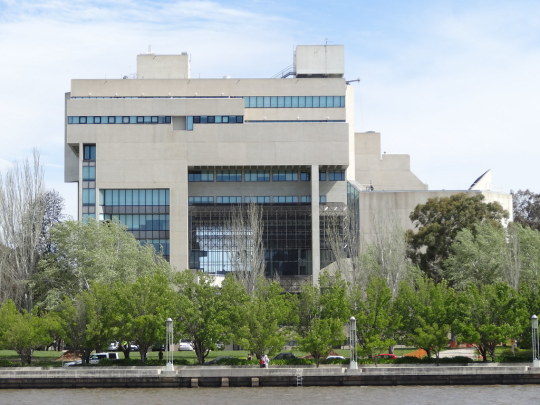
While the case turns on a narrow question of Australian constitutional law, it also raises urgent concerns about the human consequences of a flawed and discriminatory “fast-track” legal process for determining the status of asylum seekers who arrive by boat.
The case is tied to widely criticised immigration reforms the Albanese government is attempting to push through parliament. The reforms seek to punish people who do not actively cooperate in their own deportation, even in cases where people have good reasons for not cooperating or when certain countries, like Iran, do not accept the forced return of their citizens.
This draft legislation was prompted by the release of some 150 detainees from immigration detention following another High Court decision last year.
Refugees and refugee advocates will be watching today’s case closely as it may result in further, important limits on the immigration minister’s power to keep people indefinitely in detention. It could also affect up to 200 people currently being detained.
What the Case Is About
The case has been brought by a man known by the pseudonym “ASF17”, who claims a genuine fear of serious harm if he is forcibly deported to Iran, a country where sexual activity between men is illegal and can be punished by death.
Even though ASF17 arrived by boat in July 2013, he was only permitted to apply for refugee status in August 2015. In 2017, a officer in the then-Department of Immigration and Border Protection rejected his refugee visa application.
While it seems that ASF17 did not explicitly mention his bisexuality to this official, he clearly stated he could not return to Iran because of “his problems”. He has refused to cooperate with efforts to deport him since 2018.
Evidence shows there are many reasons why asylum seekers may not fully disclose the true extent of their fears of persecution at the initial stages of the asylum process. The reasons include trauma, shame, a lack of trust and uncertainty. The asylum process can also be especially stressful and re-traumatising for LGBTQI+ applicants.
ASF17 has consistently maintained his refusal to return to Iran, asking the government to send him “anywhere” but Iran. Despite this, the government has kept him in closed immigration detention since February 2014 and labelled him “non-compliant” for not voluntarily departing Australia.
Yet, this label of non-compliance fails to recognise that ASF17 may have compelling reasons for not complying with the efforts to deport him.
A Flawed System for Deciding Asylum Claims
Of specific concern is the fact ASF17 had his asylum claim determined by what is known as the “fast-track” process, a discriminatory and flawed legal process for determining – and, in practice, rejecting – refugee claims.
The “fast-track” system was intended to accelerate decision-making for the asylum claims of boat arrivals and limit their review options. It was introduced by the former Coalition government in 2014 and only applied to refugees who had arrived by boat between 2010–14. Concurrent policy changes also denied asylum seekers proper access to legal advice or translation services when preparing their claims.
The system resulted in a much higher rates of asylum claim rejection. Between 2015 and 2023, the Immigration Assessment Authority (IAA) – the body set up to review fast-track decisions – refused to find a person to be a refugee in 89% of cases.
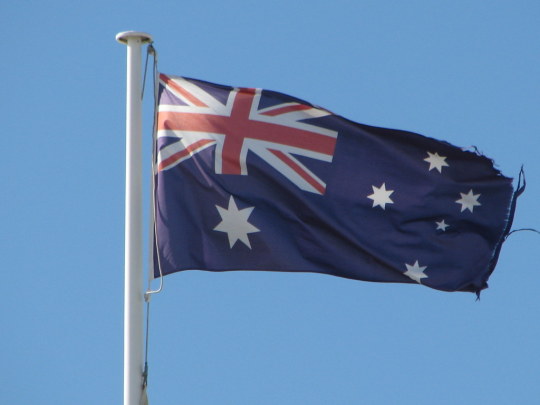
Over the same period, success rates for Iranians before the IAA were just 16%, compared to 51% before the Administrative Appeals Tribunal (the non-fast-track process).
As we have previously argued, this high rejection rate says more about an unfair legal process designed to punish refugees than about the quality of their claims.
When in opposition, Labor clearly stated the fast-track process did not provide a “fair, thorough and robust assessment process”. And last year, the government put forth legislation to completely abolish the fast-track system and create a new Administrative Review Tribunal.
If the High Court finds that ASF17’s fear of being returned to Iran is a “good reason” for his unwillingness to participate in his own deportation, this will be an implicit recognition of the abject failures of the fast-track process.
An Inhumane System of Criminalisation
Last month, the government attempted to rush through draconian new legislation that would give the immigration minister sweeping new powers to force people like ASF17 to assist in their own removal from Australia. For example, the minister could order a person to apply for a passport or other documents from the country they’re seeking to escape.
Shockingly, if a person does not comply with such a direction, they could receive between one and five years in prison and a hefty fine.
Last week, a group of 22 refugee Tamil, Kurdish and Iranian women made a submission to a Senate committee now considering the legislation. The authors all sought protection over a decade ago and have built lives, families and communities in Australia. They wrote:
We are not ‘failed refugees’ – we have been failed by a broken visa system which never offered us a fair chance. Now, the government wants to punish us further.
As other refugee law experts have pointed out:
These are extraordinary provisions without precedent in Australia. Even in the context of terrorism offences, a failure to comply with a direction does not result in mandatory imprisonment.
Future implications of ASF17’s case
ASF17’s case could have significant implications for other people who sought asylum in Australia and had their claims rejected by the fast-track process. This includes thousands of Iranians on precarious “final departure” visas who have been living in Australia for the last decade and others on stalled “removal pathways” in immigration detention.
The High Court case could also set a new precedent on when people must be released from immigration detention. At present, a person must be released if there is “no real prospect” of their deportation in the “reasonably foreseeable future”. But it is unclear what this means in a range of situations, including where a person is unwilling or unable to participate in their own deportation for good reasons such as ill health or a genuine fear of persecution.
To compel those who have been subjected to Australia’s punitive system of indefinite detention to participate in their own deportation and criminalise them for not doing so is unjust – and should remain unlawful.
Source: THE CONVESATION
0 notes
Text
Navigating Immigration with the Best Lawyers in Australia
Immigrating to a new country can be a daunting journey filled with complex legalities and bureaucratic hurdles. Whether you're seeking to reunite with family, pursue educational opportunities, or build a better future, having the right legal representation can make all the difference. In Australia, where immigration laws are constantly evolving, enlisting the expertise of the best immigration lawyers is paramount to achieving your goals with confidence and peace of mind.

Why Choose the Best Immigration Lawyers?
The immigration process can be rife with challenges, from deciphering visa requirements to navigating residency pathways. With so much at stake, entrusting your immigration matters to experienced legal professionals is crucial. The best immigration lawyers possess in-depth knowledge of Australian immigration laws and regulations, along with a proven track record of successfully representing clients from diverse backgrounds.
Finding the Top Immigration Lawyers in Sydney
Sydney, as a vibrant multicultural hub, attracts individuals and families from around the globe seeking to call Australia home. For those navigating the complexities of immigration in Sydney, finding the best legal representation is paramount. Fortunately, the city boasts a roster of highly skilled immigration lawyers renowned for their expertise, professionalism, and dedication to client success. From visa applications to appeals and litigation, these lawyers offer comprehensive services tailored to meet the unique needs of each client.
The Top Immigration Lawyer in Melbourne
As Australia's cultural capital, Melbourne welcomes immigrants from all corners of the world, each with their own aspirations and dreams. For those embarking on their immigration journey in Melbourne, having the right legal guidance is essential. The best immigration lawyer in Melbourne combines legal acumen with a deep understanding of the local landscape, helping clients navigate the intricacies of Australian immigration law with confidence and clarity.
Choosing the Best Immigration Lawyer in Australia
When it comes to immigration, the stakes are high, and the need for exceptional legal representation cannot be overstated. Whether you're seeking to obtain a skilled visa, reunite with loved ones, or seek asylum, choosing the best immigration lawyer in Australia is paramount. Look for lawyers with a proven track record of success, stellar client testimonials, and a commitment to personalized service. With the right lawyer by your side, you can navigate the complexities of immigration with confidence and peace of mind.
Conclusion: Partnering with Excellence
In the journey toward achieving your immigration goals, partnering with the best lawyers can make all the difference. Whether you're in Sydney, Melbourne, or anywhere else in Australia, entrusting your immigration matters to experienced legal professionals ensures that your rights are protected, your interests are advocated for, and your dreams of building a new life in Australia become a reality. So, take the first step toward a brighter future by choosing the best immigration lawyer to guide you through this transformative journey.
#awards certificates#australian family lawyers#sydney family lawyers#australian property lawyers#best commercial lawyers in sydney#best online legal advice free#best immigration lawyer in australia#online legal advice#best family lawyers sydney#best immigration lawyer melbourne
0 notes
Text
Lawyers tout for gay asylum seekers
New Post has been published on https://qnews.com.au/lawyers-tout-for-gay-asylum-seekers/
Lawyers tout for gay asylum seekers

An article in the Sunday Telegraph claims law firms tout for gay asylum seekers on Facebook.
The article claims the ads encourage people to claim asylum. The ads say asylum seekers may be eligible to stay in Australia permanently.
Facebook ads are said to target people from Myanmar, Sri Lanka, India, Malaysia and Indonesia.
James Campbell writes that the ads “aggressively [target] gay people from countries with a history of persecution of homosexuals, telling them they could qualify for a protection visa.”
One firm tells potential asylum seekers that it is “critical that you have excellent legal representation to ensure that you have the best chance of success.”
It goes on to explain that applications require country-specific information.
“It’s better to consult an immigration lawyer who can assist you with preparing your protection visa application, researching country information and putting forward the best submissions that are credible, logical and persuasive and assist the departmental case officer in making a decision on your visa application.
“We have assisted protection visa applicants from all over the world who have escaped death, torture and other forms of mistreatment. Our wealth of knowledge about each country sets us apart.”
Gay Asylum Seekers Asked ‘Inappropriate’ Sexual Questions By Australian Official.
Australia’s Treatment Of Asylum Seekers Is An LGBTIQ Issue.
Sad new details of Saudi sisters’ deaths in Sydney apartment.
Malaysian trans woman who fled to Australia left children behind.
Gay Saudi couple both freed from Australian detention.
Why was the life of Rakib Khan expendable?
For the latest LGBTIQA+ Sister Girl and Brother Boy news, entertainment, community stories in Australia, visit qnews.com.au. Check out our latest magazines or find us on Facebook, Twitter, Instagram and YouTube.
0 notes
Text
Racist Coalition Weaponizing Immigration

Peter Dutton and the Coalition have been whipping up fear among Australians. Racist Coalition weaponizing immigration by accusing the government of releasing dangerous detainees into the community. It was in actual fact the High Court of Australia that ordered these men who had served their sentences must be released. The frenzy over their release into the community has culminated with Victoria Police wrongly arresting one of the released detainees for sex crimes. Mistaken identity or just white folk paranoia pointing the finger at any Arab looking character?
Dog whistling Dutton does not care what damage he causes to people’s lives. Politics is everything to the very rich landlord Dutton and his party of shrill acolytes.

Dutton Has Been Crying Wolf About The Boats Again
Refugees coming to Australia illegally by boat have been winners for the nasty Tony Abbott and a succession of LNP leaders since John Howard. Peter Dutton is hoping that he can resurrect the xenophobia so beloved of his predecessors. Racist Coalition weaponizing immigration issues is a vote winner in times gone by. Whether Australia has cottoned onto the political chicanery by now, we will have to wait and see. The LNP strategists would be looking to Trump in the US for ideas and inspiration, as little old Australia always does.
“Opposition Leader Peter Dutton has attacked Labor’s immigration record, claiming 105,000 asylum seekers have entered Australia since Anthony Albanese’s government was elected.
This is false. The 105,000 figure relates to the number of asylum seekers in Australia at the end of August 2023. Most were already in the country at the time of the May 2022 federal election.
The majority of asylum seekers currently residing in Australia arrived during the 2013-2022 coalition government.
(https://www.aap.com.au/factcheck/dutton-gets-it-wrong-with-labor-asylum-seeker-claim/)

the fear monger!
Peter Dutton The Putin Of Oz
I think, also, that Peter Dutton sees himself as the Putin of Oz, the strongman of Australian politics. Dutton is never afraid to go the low blow in terms of attacking the vulnerable if there are political points to be scored. It is rumoured that Dutton is worth some $300 million from property development and land lording. Wealth makes many people feel inviolable and above reproach – the billionaire syndrome. No wonder he is always championing the propertied classes and the big end of town over ordinary working Australians.
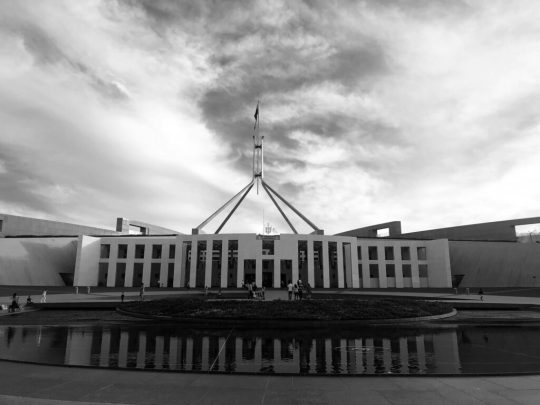
Murdoch’s News Corp Cheering For Dutton & Xenophobic Politics
Murdoch and News Corp are pumping up every news story with as much polarization appeal as possible. They have led the way with their Fox News in America with blatantly one sided reporting helping divide that country to extreme violence. Rupert has said that he is not red or blue but green, as in greenbacks. That is the kind of man he is and thank God he is no longer an Australian. His newspapers and Sky News Australia are, of course, rabidly right wing and pro-Coalition. Objective reporting died and left the room decades ago at News Corp. They are cheer leaders for extreme reactionary conservatives.
Thankfully, younger Australians don’t read newspapers or tune into Rupert’s cable TV offerings. A future without the vituperative BS from Murdoch’s editorial team would be a real blessing.
Robert Sudha Hamilton is the author of Money Matters: Navigating Credit, Debt, and Financial Freedom.
©WordsForWeb

Read the full article
0 notes
Text
Exploring the Pathways to Australian Immigration: Your Ticket to a Land of Opportunities
Are you dreaming of a life Down Under? Australia's allure as a destination for immigrants is undeniable. With its stunning landscapes, vibrant cities, high quality of life, and robust economy, it's no wonder that people from all corners of the globe aspire to make Australia their new home. However, navigating the immigration process can seem daunting. Fear not! In this microblog, we'll explore the various pathways to Australian immigration, helping you take the first step towards realizing your Australian dream.
Skilled Migration:
Australia's Skilled Migration Program is one of the most popular routes for skilled workers seeking to immigrate. The program is designed to attract individuals with skills that are in high demand in the Australian labor market. To be eligible, applicants must meet certain criteria including age, English language proficiency, qualifications, and work experience. The Skilled Occupation List (SOL) and the Consolidated Sponsored Occupation List (CSOL) outline the occupations that are in demand. Prospective applicants can also explore state-sponsored visas or employer-sponsored visas, which offer additional pathways to permanent residency.
Family Sponsorship:
For those with family ties to Australia, family sponsorship can be a viable pathway to immigration. Australian citizens, permanent residents, or eligible New Zealand citizens can sponsor their family members for various visas, including partner visas, parent visas, child visas, and remaining relative visas. Each visa category has its own set of requirements and eligibility criteria, so it's essential to thoroughly research the options available.
Business and Investment Visas:
Entrepreneurs and investors looking to establish or expand their business operations in Australia may be eligible for business and investment visas. These visas are designed to stimulate economic growth by attracting high-caliber business talent and encouraging investment in the Australian economy. Options include the Business Innovation and Investment (subclass 188) visa, which is a temporary visa leading to permanent residency, and the Business Talent (subclass 132) visa, which provides direct permanent residency for high-caliber business owners.
Student Visas:
Australia is renowned for its world-class education system, making it an attractive destination for international students. Student visas not only allow individuals to pursue their academic goals but also provide opportunities for post-study work and potential pathways to permanent residency. The Temporary Graduate (subclass 485) visa, for example, allows recent graduates to gain valuable work experience in Australia after completing their studies.
Humanitarian Visas:
Australia is committed to offering protection to refugees and individuals in need of humanitarian assistance. The Humanitarian Program provides resettlement opportunities for refugees, asylum seekers, and other vulnerable populations. This includes the Refugee and Humanitarian (subclass 200-204) visas, which are granted to individuals who are outside their home country and are in need of protection.
Regional Visas:
To address population growth imbalances and encourage settlement in regional areas, Australia offers various visas specifically for regional migration. These visas often have lower eligibility criteria compared to their non-regional counterparts and may provide a pathway to permanent residency. The Regional Sponsored Migration Scheme (subclass 187) visa and the Skilled Regional (subclass 887) visa are examples of visas that facilitate regional migration.
In conclusion, Australia offers a plethora of pathways to immigration, catering to individuals with diverse backgrounds, skills, and aspirations. Whether you're a skilled worker, a family member of an Australian resident, an entrepreneur, a student, or someone in need of humanitarian assistance, there's likely a visa option that aligns with your goals. However, navigating the immigration process can be complex, and seeking professional advice and assistance is often advisable. With careful planning and determination, you could soon find yourself calling Australia home, enjoying its boundless opportunities and embracing its rich cultural tapestry. So, what are you waiting for? Start your Australian immigration journey today!
0 notes
Text
Whats happening in Nauru
Nauru is the smallest island nation in the world. 80% of the land is inhabitable because of the phosphorus mining in the 80s, the people live on the coastal strip. A lot of the culture has been lost. Now, the country has been taken over by a giant detention center. They force immigrants to do labor work for Australia. (I saw somewhere that the people of Australia didn't want the detention center there and it took 10 years of protesting for there to be a change. There hasn't been anyone held there since about June of 2023)
Another big issue happening in Nauru is that there are people trying to seek asylum, but the Australian government doesn't want them to get to the mainland. A organization that's helping asylum seekers is the ASRC (Asylum Seeker Resource Centre), based in Victoria! It's a great resource to donate to!
Ways to help Nauru:
- spread the word
-donate to supporting organizations
If I got anything wrong, or you want to add something please feel free!
0 notes
Text
'Toughest possible regime' for immigration detainees
_ FreeQuizBank.com - Free Exam Practice Questions for LANTITE Numeracy, Mathematical Reasoning - OC, Selective and Scholarship Tests
@acereduau #NSWeducation #AusEdu @AusGovEducation @ServiceNSW
0 notes
Text
'Toughest possible regime' for immigration detainees
_ FreeQuizBank.com - Free Exam Practice Questions for LANTITE Numeracy, Mathematical Reasoning - OC, Selective and Scholarship Tests
@acereduau #NSWeducation #AusEdu @AusGovEducation @ServiceNSW
0 notes
Text
Landmark Australian Ruling Rejects Indefinite Immigration Detention
In a landmark decision on Wednesday, Australia’s high court ruled that indefinite immigration detention is unlawful. The decision overturns a 2004 ruling that held that noncitizens without visas could be detained indefinitely, so long as the government intended to remove them as soon as “reasonably practicable.”
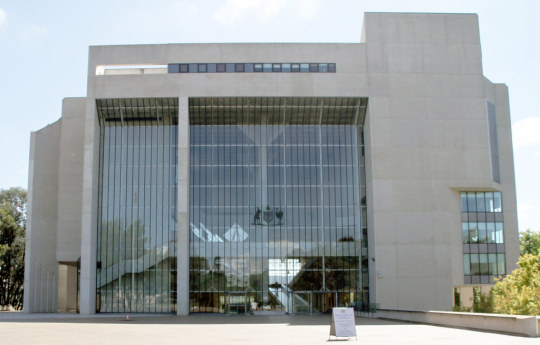
The current case centered around a stateless Rohingya refugee facing the prospect of life in detention. The man was born in Myanmar and arrived in Australia by boat as a teenager in 2012. He had been granted a temporary visa, but it was canceled in 2015 when he was convicted of a criminal offense and imprisoned. Upon completion of his sentence in 2018, the government transferred him to immigration detention. The Australian government had rejected his visa application on the grounds he had committed a “serious crime and was a danger to the community.”
As an ethnic Rohingya, he is effectively denied citizenship under Myanmar’s 1982 Citizenship Law. Six other countries the Australian government had asked to resettle him also rejected him.
In the November 8 ruling, the high court determined that because there is no real prospect the man could be removed from Australia in the “reasonably foreseeable future,” his continued detention is unlawful, and he must be released immediately.
The ruling could trigger further immigration detention releases. There are reportedly 92 people in a similar positions who have largely been refused visas on character grounds. Most could not be deported to their home countries because they had a well-founded fear of persecution.
The Australian government has placed hundreds of noncitizens in immigration detention for years. The average detainee is held for 708 days and there are currently 124 people who have been detained for more than five years.
Successive Australian governments have used the detention of asylum seekers as a form of deterrence.
Since 1992, Australia has had a policy of mandatory detention of all asylum seekers arriving by boat. In 2013, the government sharpened this policy further to mandate sending those who arrive by boat to offshore detention or turning boats back to the country departed from.
Under international human rights law, immigration detention should be an exceptional measure of last resort, not a punishment.
The high court’s ruling provides real hope for those languishing in limbo for years in Australian immigration detention.
Source: https://www.hrw.org/news/2023/11/09/landmark-australian-ruling-rejects-indefinite-immigration-detention
0 notes